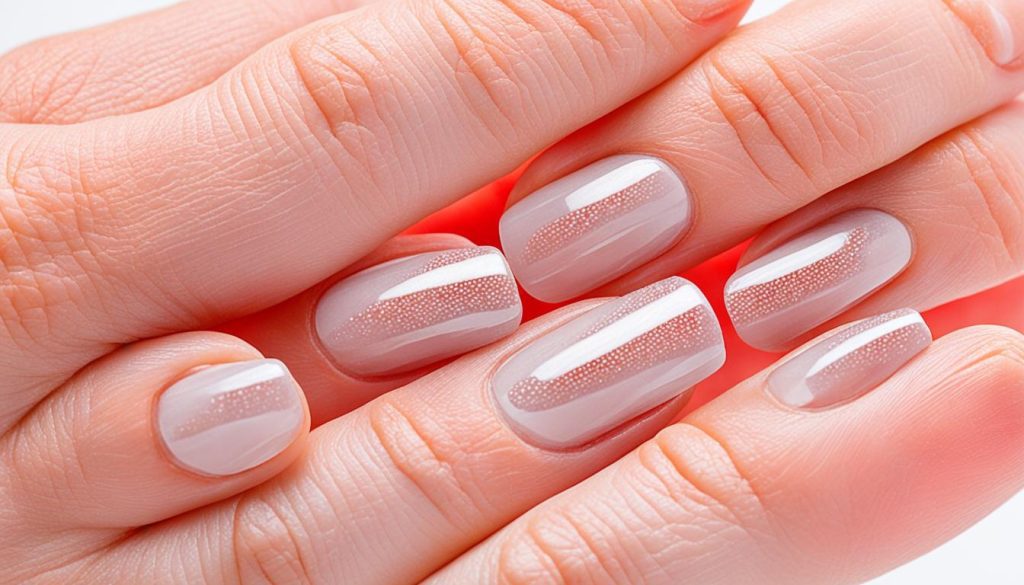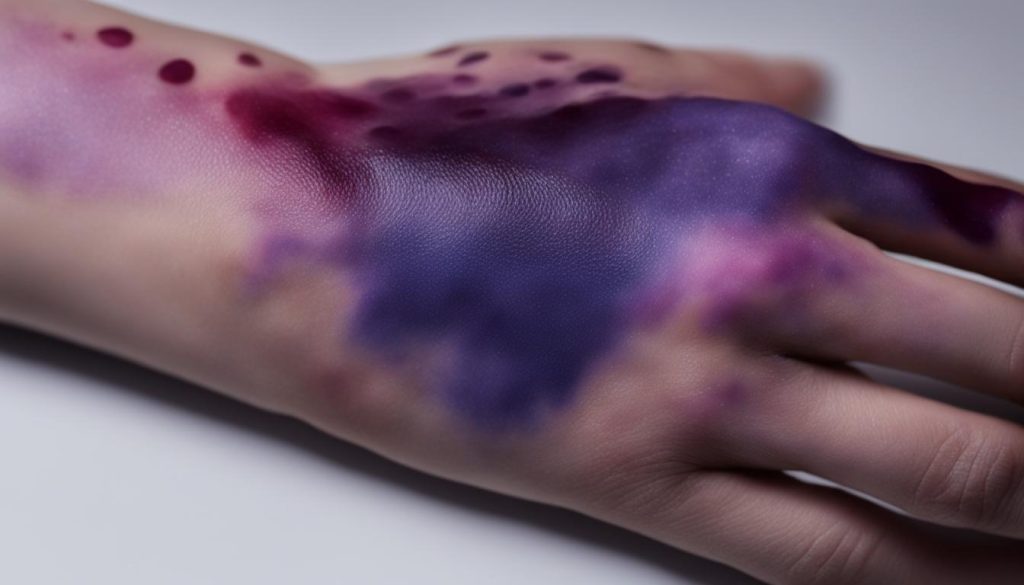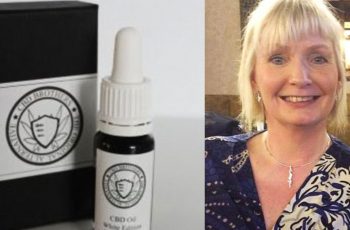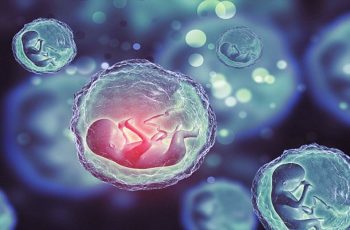As a nutritionist, I often come across clients who aren’t aware of the importance of vitamin C in their diets. While deficiency in this essential nutrient is relatively rare in developed countries, it’s still something to be mindful of. In fact, roughly 7% of adults in the US are affected by vitamin C deficiency. So, how can you tell if you have low vitamin C levels? Let’s explore the signs and symptoms to watch out for.
Recognize Low Vitamin C Symptoms
- Low vitamin C levels can lead to a range of symptoms and effects on the body.
- Poor diet, alcoholism, anorexia, smoking, and certain medical conditions are common causes of vitamin C deficiency.
- Subtle signs of low vitamin C include rough, bumpy skin, corkscrew-shaped body hair, and bright red hair follicles.
- Other symptoms may include spoon-shaped fingernails, dry and damaged skin, easy bruising, and weakened bones.
- If you experience any of these symptoms, it’s essential to consult with a healthcare professional for a proper diagnosis and treatment.
Low vitamin C levels can have a profound impact on our overall health and wellbeing. While it’s easy to overlook the importance of this nutrient, it’s crucial to spot the early warning signs of deficiency. In the following sections, we’ll delve deeper into specific symptoms to help you identify if you might be lacking in vitamin C.
Rough, Bumpy Skin
Vitamin C deficiency can lead to the development of small acne-like bumps on the skin, commonly referred to as keratosis pilaris or chicken skin. These rough and bumpy patches typically appear on the arms, thighs, or buttocks.
Keratosis pilaris is often a result of inadequate intake of vitamin C over a period of three to five months. However, it’s important to note that there can be other potential causes of this condition, so its presence alone may not be enough to diagnose a deficiency.
To visualize the effects of vitamin C deficiency on the skin, take a look at the image below:
As shown in the image, rough and bumpy patches can appear on the skin, especially the arms, thighs, or buttocks, indicating a possible vitamin C deficiency.
Fortunately, rough, bumpy skin caused by vitamin C deficiency can be resolved with adequate supplementation. It’s important to consult with a healthcare professional to determine the appropriate dosage and method of supplementation.
If you notice the presence of keratosis pilaris or chicken skin on your skin, it may be beneficial to have your vitamin C levels assessed to ensure optimal health. Taking steps to address a potential deficiency can lead to improved skin condition and overall well-being.
Corkscrew-Shaped Body Hair
Another significant symptom of vitamin C deficiency is the abnormal growth of hair, known as corkscrew-shaped hair. When the body lacks sufficient vitamin C, hair may grow in bent or coiled shapes. This unique characteristic is a hallmark sign of vitamin C deficiency.
However, it’s important to note that corkscrew-shaped hair may not be immediately obvious as these damaged hairs are more prone to breakage and falling out. Therefore, one may not notice the unusual hair growth unless they closely examine the strands.
If you suspect that you have a vitamin C deficiency, an experienced healthcare professional can assess your symptoms and provide the appropriate diagnosis. They may also recommend treatment options to help alleviate your symptoms and restore your hair’s health.
Bright Red Hair Follicles
Hair follicles contain many tiny blood vessels that can rupture due to a vitamin C deficiency, causing bright red spots to appear around the hair follicles. This condition is known as perifollicular hemorrhage, and it is a well-documented sign of severe vitamin C deficiency.
Perifollicular hemorrhage is more commonly observed in individuals with advanced deficiency. These bright red spots are often visible on the scalp and may also be present on other areas of the body with hair follicles. The presence of perifollicular hemorrhage indicates a significant deficiency and should prompt immediate action.
Treating vitamin C deficiency involves increasing intake of foods rich in vitamin C or taking supplements. Ensuring an adequate intake of vitamin C typically resolves perifollicular hemorrhage within two weeks.
It is also important to note that perifollicular hemorrhage is not limited to vitamin C deficiency and can occur due to other underlying medical conditions or nutrient deficiencies. Therefore, if you suspect that you may have perifollicular hemorrhage, it is essential to consult a healthcare professional for proper diagnosis and treatment.
Spoon-Shaped Fingernails With Red Spots or Lines
Vitamin C deficiency can manifest in various ways, one of which is the appearance of spoon-shaped fingernails with red spots or lines underneath the nail bed. It’s important to pay attention to any changes in the appearance and texture of your nails, as they can provide valuable insights into your overall health.
Spoon-shaped nails, also known as koilonychia, are characterized by their concave shape and thin, brittle texture. Instead of the typical convex curve, the nails curve inward, resembling a spoon. This abnormal shape can be a sign of vitamin C deficiency, among other conditions.
In addition to the spoon-shaped appearance, vitamin C deficiency may also cause the development of red spots or lines underneath the nails. These spots, called splinter hemorrhages, occur when tiny blood vessels in the nail bed rupture. While their presence can be alarming, it’s essential to consider other potential causes before jumping to conclusions.
While spoon-shaped fingernails and splinter hemorrhages may indicate a vitamin C deficiency, they are not considered diagnostic. If you notice these symptoms, it’s important to consult with a healthcare professional for a comprehensive evaluation and vitamin C deficiency diagnosis.
Proper diagnosis is crucial as other factors, such as iron deficiency anemia or certain autoimmune diseases, can also lead to similar nail abnormalities. Your healthcare provider will consider your medical history, conduct a physical examination, and may recommend additional tests to determine the underlying cause and tailor an appropriate treatment plan.
Remember, maintaining adequate levels of vitamin C is essential for overall health and wellbeing. If you suspect a vitamin C deficiency or have concerns about your nail health, seek guidance from a healthcare professional for proper diagnosis and guidance.

Dry, Damaged Skin
Low intakes of vitamin C are associated with dry, sun-damaged skin. Vitamin C plays a key role in protecting the skin from oxidative damage caused by the sun and other pollutants. This deficiency can also lead to a 10% increased risk of developing dry, wrinkled skin. However, it’s important to note that dry, damaged skin can be caused by other factors as well, so this symptom alone is not enough to diagnose a deficiency.
Easy Bruising
A common symptom of vitamin C deficiency is easy bruising, which occurs due to weakened blood vessels. When blood vessels lack the necessary support from vitamin C, they become fragile and more prone to rupture, leading to the appearance of bruises. Easy bruising is often one of the first obvious signs of vitamin C deficiency and should prompt further investigation into vitamin C levels.
Deficiency-related bruises can manifest in different ways. They may cover large areas of the body or appear as small, purple dots under the skin. These bruises may occur more frequently and take longer to heal than normal bruises.
It’s important to note that easy bruising can be caused by other factors as well, such as certain medications or underlying health conditions. However, if you experience easy bruising along with other symptoms associated with vitamin C deficiency, it’s advisable to consult a healthcare professional for diagnosis and appropriate treatment.

Weak Bones
Vitamin C deficiency can have a significant impact on bone health, resulting in weak bones and an increased risk of fracture and osteoporosis. This crucial nutrient plays a critical role in bone formation, helping to maintain their strength and density. When there is a deficiency of vitamin C, the rate of bone loss can increase, making the bones more vulnerable to fractures.
It is especially important to address vitamin C deficiency in children, as their skeletons are still developing. Insufficient intake of vitamin C during childhood can hinder proper bone growth and result in long-term consequences for their skeletal health.
To ensure strong and healthy bones, it is vital to maintain an adequate intake of vitamin C. Incorporate vitamin C-rich foods like citrus fruits, bell peppers, strawberries, and broccoli into your diet. If needed, consult with a healthcare professional to determine the appropriate vitamin C supplementation to support optimal bone health.
FAQ
What are the symptoms of low vitamin C levels?
Symptoms of low vitamin C levels can include rough, bumpy skin (keratosis pilaris), corkscrew-shaped body hair, bright red hair follicles (perifollicular hemorrhage), spoon-shaped fingernails with red spots or lines (splinter hemorrhage), dry and damaged skin, easy bruising, and weak bones.
How can I tell if I have low vitamin C?
If you experience any of the above symptoms, it may indicate low vitamin C levels. However, it’s important to consult with a healthcare professional for an accurate diagnosis.
What causes vitamin C deficiency?
Common causes of vitamin C deficiency include a poor diet, alcoholism, anorexia, severe mental illness, smoking, and dialysis.
Can low vitamin C levels be diagnosed?
While certain symptoms can raise suspicion of vitamin C deficiency, a definitive diagnosis can only be made through blood tests that measure vitamin C levels in the body.
How can I improve my vitamin C levels?
Increasing your intake of vitamin C-rich foods such as citrus fruits, strawberries, kiwi, bell peppers, and broccoli can help improve your vitamin C levels. In some cases, supplementation may be necessary under the guidance of a healthcare professional.
Are vitamin C deficiency symptoms reversible?
Yes, most vitamin C deficiency symptoms can be reversed with adequate supplementation and a balanced diet rich in vitamin C.
Can vitamin C deficiency affect my skin?
Yes, low vitamin C levels can lead to dry, sun-damaged skin and an increased risk of developing dry, wrinkled skin.
Can vitamin C deficiency weaken my bones?
Yes, vitamin C deficiency can weaken bones and increase the risk of fractures and osteoporosis, especially in children who are still growing and developing.




